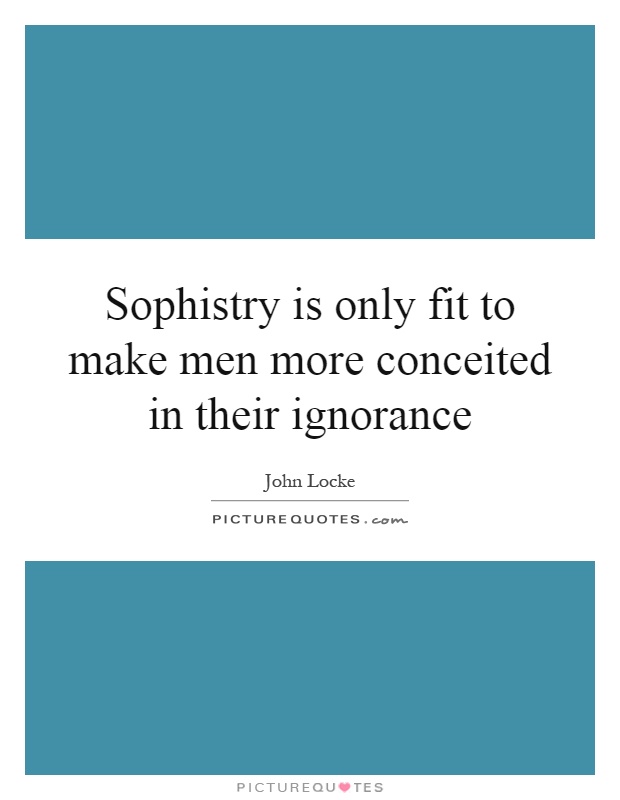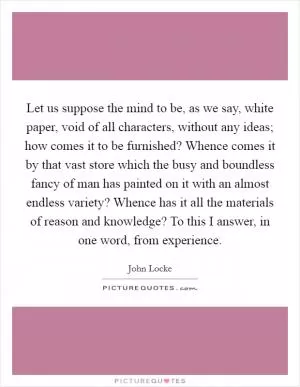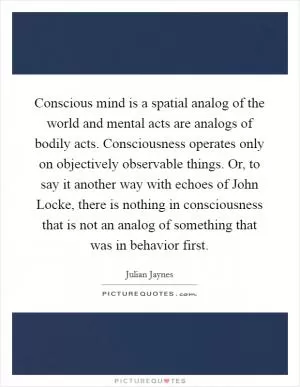Sophistry is only fit to make men more conceited in their ignorance

Sophistry is only fit to make men more conceited in their ignorance
John Locke, a prominent figure in the Enlightenment era, was a staunch critic of sophistry and its detrimental effects on human understanding. In his works, Locke argued that sophistry, which he defined as the use of clever but false arguments to deceive or manipulate others, only serves to make individuals more conceited in their ignorance rather than fostering genuine knowledge and understanding.Locke believed that sophistry was a dangerous tool used by those in power to maintain control over the masses. By employing deceptive rhetoric and fallacious reasoning, sophists could manipulate people into believing falsehoods and accepting flawed arguments as truth. This, in turn, would lead individuals to become more arrogant in their ignorance, as they would be convinced of their own superiority and infallibility despite lacking true knowledge and understanding.
Locke saw sophistry as a threat to the pursuit of knowledge and the advancement of society. He believed that true understanding could only be achieved through rational inquiry, critical thinking, and empirical evidence, rather than through the use of deceptive tactics and manipulative rhetoric. By encouraging individuals to question authority, challenge established beliefs, and seek out evidence-based truths, Locke sought to combat the influence of sophistry and promote a more enlightened and informed society.












 Friendship Quotes
Friendship Quotes Love Quotes
Love Quotes Life Quotes
Life Quotes Funny Quotes
Funny Quotes Motivational Quotes
Motivational Quotes Inspirational Quotes
Inspirational Quotes